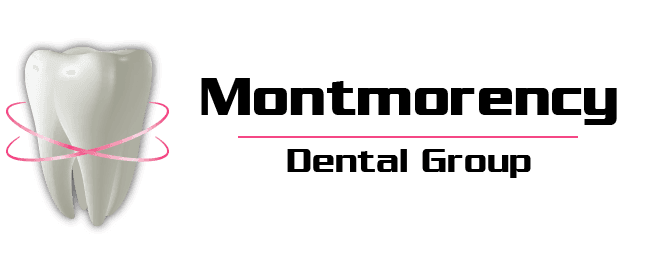Gum & Oral Hygiene
Gum and Oral Hygiene in Montmorency
Gum Disease treatments and Oral Hygiene Care
Made easy with Montmorency Dental Group
Call our team today and let us help Stop Gum Disease before larger problems occur
Healthy teeth begin with healthy gums, so if you are suffering from bleeding, sensitive or swollen gums, bad breath or teeth that seem to have moved, it may be time to take a closer look at your gums. We can give you advice on how to prevent gum (periodontal) disease, bleeding gums and tooth decay. Regular visits to your Dentist will ensure that any problems are identified quickly so that you can stop gum disease in its tracks.
If left untreated, gum disease can lead to loss of your teeth, however our dentists will work with you to help rectify gum problems and repair any damage to your teeth or jaw that might already have occurred. We may advise you on a long-term treatment plan to ensure you maintain good oral health over the coming years and you will receive excellent guidance on how to look after your gums and teeth. We can even help provide you with dietary advice and instructions on how best to brush and floss your teeth so that you avoid the build-up of plaque that can cause gum disease.
What is gum disease?
Periodontal disease, commonly known as gum disease, it is a chronic bacterial infection of the gums and bone supporting the teeth. It is a major cause of tooth loss in adults; however, because gum disease is usually painless, you may not even know you have it. Although most individuals suffer gum inflammation from time to time, according to research around 10-15% of the population appear to suffer from the more severe forms of the disease, which causes loss of supporting bone. This group of people appear to be at the greatest risk of losing teeth through periodontal disease.
What are the causes of gum disease?
The main cause of gum disease is the formation of dental plaque, which is a sticky film on the tooth surface. The bacteria contained in plaque release toxins that can damage the gums. If plaque is allowed to accumulate, it causes inflammation of the surface of the gums which is known as ‘gingivitis’. This inflammation will resolve if the plaque is removed through cleaning of the teeth and no permanent damage is done. As the amount of plaque increases it can begin to mineralise and form tartar (calculus). Such hard deposits have a rough surface and allow more plaque to form and cause further damage to the gums. If plaque accumulates for a long time the changes it causes in the gums can lead to loss of the bone support, a condition known as ‘periodontitis’.

How do I know if I have gum disease?
The signs and symptoms of periodontal disease are variable but may include reddening and swelling of the gums, gums that bleed on brushing, gums that have pulled away from the teeth together with evidence of loose teeth, a bad taste in the mouth and also have bad breath. However, because pain is rarely a symptom until the disease is at an advanced stage, this can also go undetected as changes can vary between patience. We recommend to have your teeth and gums checked by a Dentist every 6 months. Our team here at Montmorency Dental Group are more than happy to assist you with any gum or teeth concerns, we are conveniently located in Melbourne Eastern suburbs of Montmorency.
Symptoms of Gum Disease
Stopping the progression of gum disease before it escalates can save patients added time, discomfort, and expense. Some Common Signs of gum disease can include:
- Red, inflamed gums
- Bleeding while brushing or flossing
- Receding gums
- Loose or separating teeth
- Presence of pus between the gum and tooth
- Chronic halitosis
Treating gum disease and bleeding gums is one of the most important things you can do for yourself and your family. We take it seriously, and so should you. Please call or Book your Appointment today.
Dental Hygiene Montmorency
Servicing Melbourne’s Eastern Suburbs
Good oral hygiene isn't only important for a white smile. It can also impact on your overall health and wellbeing.
Our dentists place a strong emphasis on prevention and oral hygiene education. We advise patients of all ages on the best ways to look after their teeth and gums, to help lower their risk of tooth decay, gum disease and related health problems.
Daily oral care at home and regular check-ups along with professional teeth cleaning with our dental hygienist improve your chances of living free from cavities, bad breath and painful dental problems.
Why is oral hygiene important?
Oral health is about more than a pretty smile. Daily brushing and flossing, a balanced diet and regular check-ups with your dentist can lower your risk of developing dental diseases and oral infections.
As oral health reflects general health, taking good care of your teeth and gums and following your dental hygienist's instructions can also lower your risk for a variety of other health problems.
Understanding how dental problems such as tooth decay and gum disease start, and spotting the warning signs, could help you to take care of your oral health.
Tooth decay
Tooth decay (dental caries) is caused by dental plaque, a film of bacteria that can build up on the teeth. If it's not thoroughly removed, it eventually hardens into tartar (calculus).
This bacteria feasts on the food and drink you consume every day, especially sugars. It converts these into acids that can slowly erode the hard enamel surface of your teeth, exposing the yellow dentine beneath or even reaching the soft centre of the tooth where the nerve endings lay.
Maintaining regular brushing and flossing can usually remove most plaque, and a dental hygienist can remove hardened plaque during your hygiene appointment. If tooth decay is untreated, it can lead to cavities that may need a filling or a pulp infection that may result in a root canal
If you think you might have gum disease, tooth decay or another oral health problem, call us on 03 9431 4431
or book online and schedule an appointment time that suits you we'll help you arrange an appointment at the nearest time that's convenient for you.
Daily oral hygiene tips
Taking care of your teeth and gums every day is the best way to keep plaque at bay and keep your smile sparkling. When you visit us for your check-up, your dentist will let you know if your oral care routine needs to be improved and can offer more personalised advice.
In general, our dentists recommend that you:
- Brush your teeth twice a day – brush for two minutes each time and make sure you clean all surfaces of the tooth. Replacing your toothbrush or electric toothbrush head every 3 months.
- Use fluoride toothpaste – fluoride helps to strengthen teeth enamel for that extra protection against plaque. Young children should use low-fluoride children's toothpaste.
- Floss once a day – flossing between your teeth can remove trapped food and plaque from areas your toothbrush can't reach.
- Cut down on sugar – sugar in snacks, soft drinks, fruit juice and sports drinks is a major cause of tooth decay in Australia.
- Follow a balanced diet – leafy greens, lean proteins and calcium-rich food and drink can help to strengthen enamel and stimulate saliva.
- Drink plenty of water – if your local water supply contains fluoride, drinking tap water can help to protect your teeth as well as keeping you hydrated.
- Reduce snacking – Reducing the amount of time you eat during the day can help reduce the bacteria growth.
